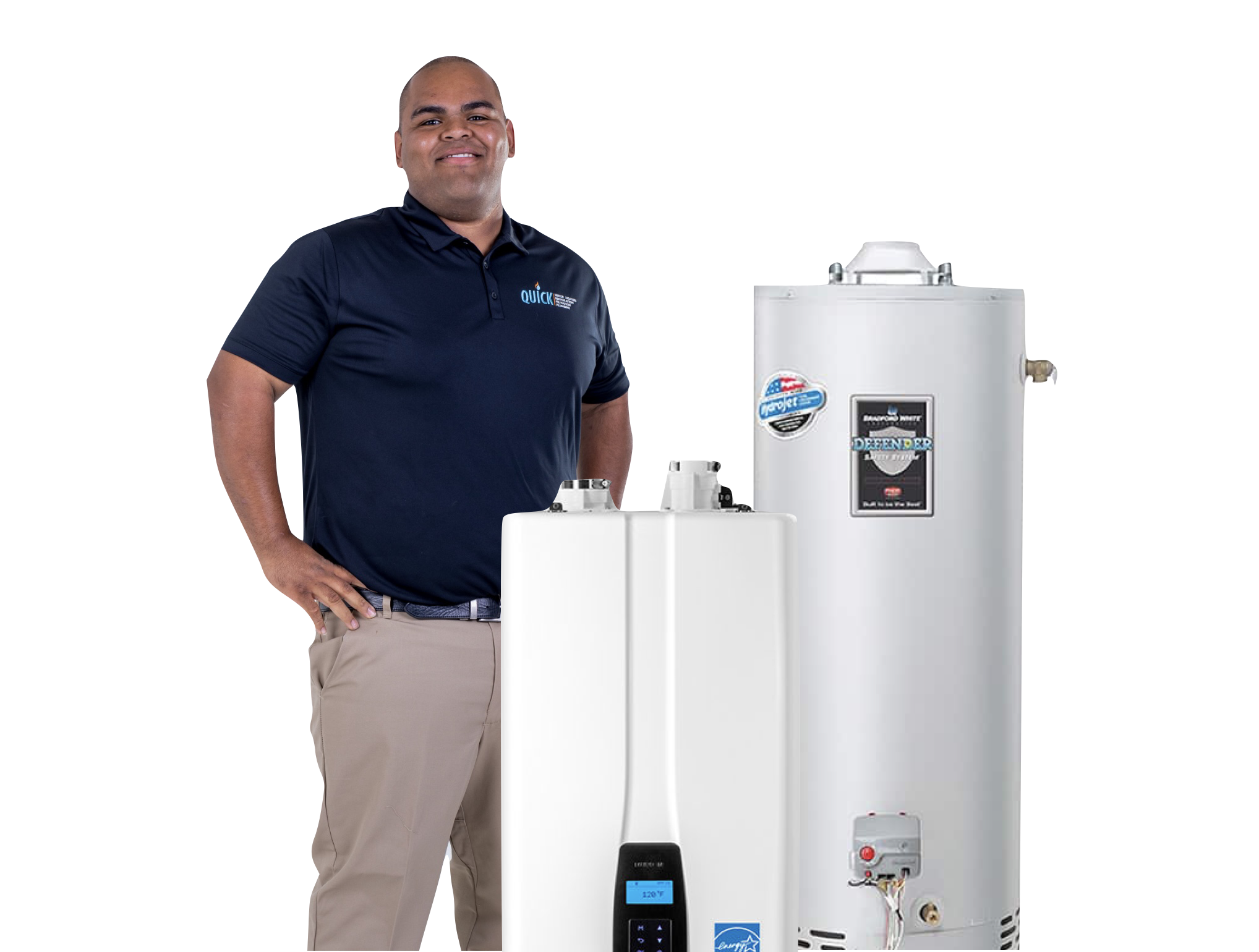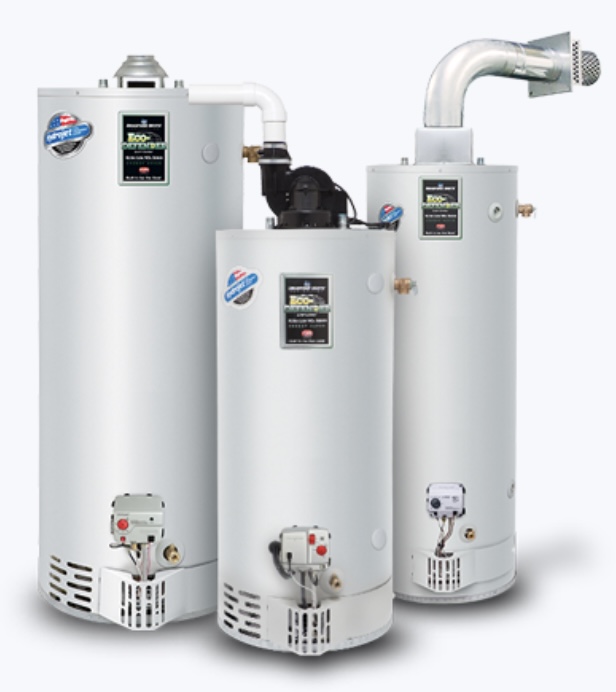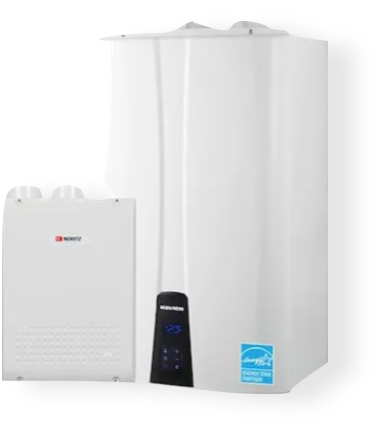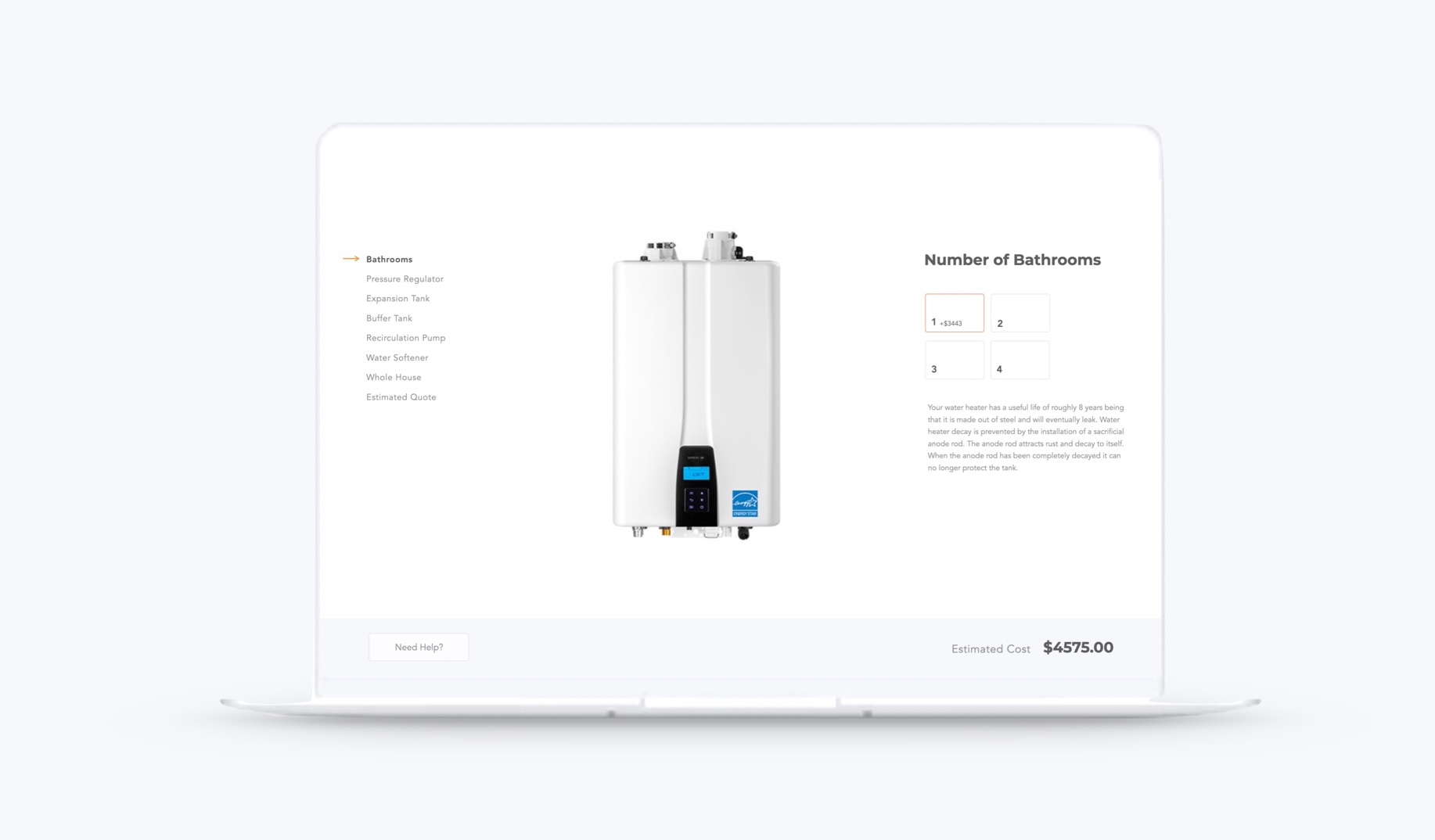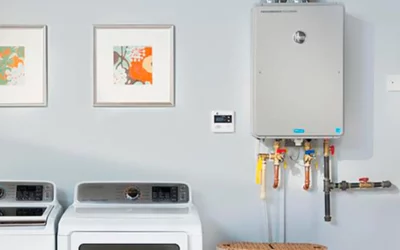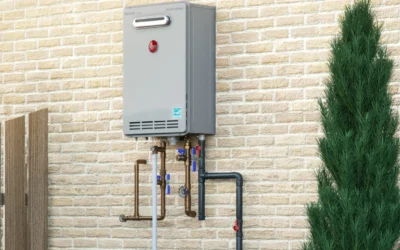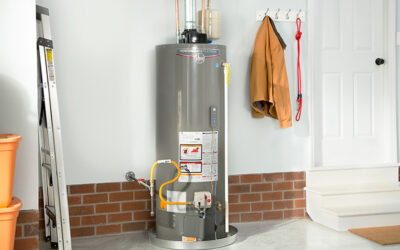If you are experiencing issues with your electric hot water heater, this comprehensive repair guide is here to help. Whether you are facing common problems or need assistance with preventive maintenance, this guide provides step-by-step instructions, troubleshooting tips, and answers to frequently asked questions. From understanding the basics of electric hot water heaters to identifying and repairing specific problems, this guide covers everything you need to know to keep your water heater functioning efficiently.
Introduction
The introduction section provides an overview of the electric hot water heater repair guide, setting the stage for understanding the basics of electric hot water heaters and addressing common issues, preventive maintenance tips, and frequently asked questions.
Understanding the Basics of Electric Hot Water Heaters
Electric hot water heaters are essential appliances in households, providing a steady supply of hot water for various purposes. To ensure their optimal performance and longevity, it is crucial to understand the basics of these devices.
Electric hot water heaters work by using electrical energy to heat water stored in a tank. The process starts when cold water enters the tank through a dip tube, which directs the water to the bottom of the tank. Inside the tank, electric heating elements heat the water to the desired temperature. Once the water reaches the set temperature, it is ready for use and is distributed throughout the house.
Understanding the basic components of electric hot water heaters is important for troubleshooting and maintenance. These units typically consist of a tank, heating elements, thermostats, a pressure relief valve, and a drain valve. The tank is insulated to minimize heat loss, while the heating elements are responsible for heating the water. The thermostats control the temperature of the water and regulate the operation of the heating elements.
Familiarizing yourself with the basics of electric hot water heaters allows you to identify and address any issues that may arise. Whether it’s a lack of hot water, unusual noises, or water leaks, having a solid understanding of how these appliances work will help you diagnose and resolve problems efficiently. Additionally, it will enable you to communicate effectively with professionals if the need for repairs or maintenance arises.
By comprehending the fundamental workings of electric hot water heaters, you can ensure their proper operation, extend their lifespan, and potentially save on energy costs. It is always beneficial to have a good grasp of the basics to make informed decisions about repairs, replacements, or preventive measures for your electric hot water heater.
Common Issues with Electric Hot Water Heaters
Common issues with electric hot water heaters can range from heating problems and inadequate hot water supply to leaks and strange noises. It is important to identify and address these issues promptly to ensure the efficient and reliable operation of your water heater.
Identifying the Problem: Water Heater Repair Diagram
To effectively identify and troubleshoot issues with your electric hot water heater, it is crucial to have a clear understanding of the problem at hand. One useful tool in this process is a water heater repair diagram. This diagram provides a visual representation of the various components and connections within the water heater system, helping you pinpoint the specific area that requires attention.
By referring to the water heater repair diagram, you can easily identify potential culprits causing the malfunction. For example, if you notice a lack of hot water, the diagram can guide you to check the heating element, thermostat, or electrical connections. Similarly, if you detect a leak, the diagram can assist you in identifying the source, such as a faulty valve or a damaged pipe.
The water heater repair diagram serves as a valuable resource, particularly for those with limited experience in dealing with electric hot water heater repairs. It eliminates guesswork and allows for a more systematic approach to troubleshooting. By following the visual representation provided by the diagram, you can confidently navigate the water heater system and address the identified problem efficiently.
It is important to note that each water heater model may have a unique repair diagram specific to its design. Therefore, it is recommended to refer to the manufacturer’s documentation or consult a professional if you are unsure about the layout or components of your specific water heater model.
Step-by-Step Water Heater Repair Guide
If you are experiencing issues with your electric hot water heater, a step-by-step water heater repair guide can be a valuable resource. This guide will provide you with detailed instructions on how to identify and fix common problems that may arise with your water heater.
Firstly, it is important to ensure your safety before attempting any repairs. Make sure to turn off the power supply to the water heater and shut off the water source. This will prevent any accidents or further damage.
Once you have taken the necessary safety precautions, you can begin the repair process. The step-by-step guide will walk you through the different components of the water heater and explain how to troubleshoot and fix specific issues.
For example, if you are experiencing a lack of hot water, the guide will instruct you to check the thermostat settings and adjust them if necessary. It may also provide instructions on how to test the heating elements and replace them if they are faulty.
If you notice leaks around the water heater, the guide may advise you to inspect the pressure relief valve and drain valve for any signs of damage or corrosion. It may also provide instructions on how to replace these components if needed.
Throughout the step-by-step guide, you will find detailed explanations and illustrations to assist you in the repair process. Following the instructions carefully will help you address the problem and restore the functionality of your electric hot water heater.
Remember, if you are unsure about any step or if the problem seems complex, it is always recommended to seek professional assistance. Hiring a professional plumber or electrician with experience in water heater repairs can ensure the job is done correctly and safely.
By using the step-by-step water heater repair guide, you can save time and money by addressing common issues with your electric hot water heater on your own. However, remember to always prioritize your safety and seek professional help when needed.
Preventive Maintenance Tips for Electric Water Heaters
Preventive maintenance tips for electric water heaters include regular inspection and cleaning, as well as checking for leaks and corrosion to ensure optimal performance and prevent potential issues.
Regular Inspection and Cleaning
Regular inspection and cleaning are essential for maintaining the optimal performance of your electric hot water heater. By conducting regular inspections, you can identify any potential issues or signs of wear and tear early on, allowing you to address them before they escalate into major problems.
During the inspection process, ensure that all the components of your electric hot water heater are in good condition. Check for any leaks, cracks, or signs of corrosion in the tank, pipes, and valves. Additionally, inspect the heating elements and thermostat to ensure they are functioning properly. If you notice any abnormalities or defects, it is crucial to address them promptly to prevent further damage.
Cleaning your electric hot water heater is equally important. Over time, sediment and mineral deposits can accumulate at the bottom of the tank, affecting its efficiency and performance. To clean the tank, you can drain the water heater and flush out any sediment or debris. This process will help maintain optimal heating efficiency and extend the lifespan of your electric hot water heater.
Regular inspection and cleaning should be performed at least once a year. However, in areas with hard water or if you notice any changes in the performance of your water heater, it is recommended to conduct inspections more frequently. By incorporating these preventive maintenance practices into your routine, you can ensure that your electric hot water heater operates at its best, providing you with reliable hot water whenever you need it.
Checking for Leaks and Corrosion
To ensure the optimal performance and longevity of your electric hot water heater, it is crucial to regularly check for leaks and corrosion. These two issues can significantly impact the efficiency of your water heater and even lead to more severe problems if left unattended.
Leaks can occur in various parts of the water heater, including the tank, valves, or fittings. It is important to inspect these components regularly to identify any signs of leakage. Look for water puddles or dampness around the heater, as well as any dripping or spraying water. Even a small leak can result in water wastage and potential damage to the surrounding area, so prompt detection and repair are essential.
Corrosion, on the other hand, can affect both the internal and external components of the water heater. It occurs due to the interaction between the water, metal surfaces, and various minerals present in the water supply. Signs of corrosion can include rust or discoloration on the tank or pipes, as well as a metallic taste or odor in the hot water.
To check for leaks, start by examining the tank for any visible signs of water accumulation or moisture. Inspect the valves and fittings, such as the pressure relief valve and drain valve, for any signs of leakage. If you notice any leaks, it is advisable to consult a professional plumber for repair or replacement.
For corrosion inspection, carefully examine the tank, pipes, and other metal components of the water heater. Look for any signs of rust, discoloration, or deterioration. If you suspect corrosion, it is important to address the issue promptly as it can weaken the tank and pipes, leading to leaks or even a complete failure of the water heater.
Regularly checking for leaks and corrosion is an integral part of preventive maintenance for your electric hot water heater. By promptly addressing any issues, you can extend the lifespan of your water heater and avoid costly repairs or replacements in the future. If you are unsure about performing these inspections yourself, it is recommended to seek the assistance of a professional plumber to ensure a thorough evaluation and proper maintenance of your electric hot water heater.
FAQ
The FAQ section provides answers to common questions about troubleshooting, repairing, and maintaining electric hot water heaters.
1. How can I troubleshoot a malfunctioning electric hot water heater?
When faced with a malfunctioning electric hot water heater, there are several troubleshooting steps you can take to identify and potentially fix the problem. Start by checking the power supply to ensure that the heater is receiving electricity. If the power is on, but there is no hot water, the heating element may be faulty and need to be replaced. Additionally, you can inspect the thermostat settings to ensure they are properly adjusted.
Another common issue with electric hot water heaters is insufficient hot water or water that is not hot enough. This could be caused by a variety of factors, such as a faulty thermostat, a buildup of sediment in the tank, or a malfunctioning heating element. In these cases, it may be necessary to clean the tank or replace the faulty components.
If you are unable to troubleshoot and resolve the issue on your own, it is advisable to hire a professional to repair your electric hot water heater. They have the expertise and tools necessary to identify and fix complex problems, ensuring the safety and efficiency of your water heating system.
It is important to note that when repairing an electric hot water heater, safety precautions should always be taken. Make sure to turn off the power supply before attempting any repairs and avoid working on the heater if you are unsure of what you are doing. If in doubt, consult a professional to avoid any potential hazards.
Regular maintenance is key to preventing major issues with your electric water heater. By inspecting and cleaning the tank regularly, you can remove any sediment or debris that may affect its performance. Additionally, checking for leaks and corrosion can help identify potential problems before they escalate.
In conclusion, troubleshooting a malfunctioning electric hot water heater involves checking the power supply, inspecting thermostat settings, and identifying potential issues with heating elements or sediment buildup. If unable to resolve the problem, it is recommended to hire a professional for repairs. Safety precautions should always be taken when working on an electric water heater, and regular maintenance is crucial for preventing major issues.
2. Can I repair an electric water heater on my own or should I hire a professional?
Repairing an electric water heater can be a complex task that requires technical knowledge and experience. While some minor issues can be resolved by homeowners, it is generally recommended to hire a professional for electric water heater repairs.
Attempting to repair an electric water heater on your own without the necessary expertise can lead to further damage or even personal injury. Professionals, like Quick Water Heater, have the skills and training to accurately diagnose and fix the problem without causing any additional harm.
Moreover, hiring a professional ensures that the repair is done correctly and efficiently, saving you time and frustration. Quick Water Heater, for example, is a reputable company in San Diego County known for its transparent pricing and high-quality service. By entrusting the repair to professionals, you can have peace of mind knowing that the job will be done right the first time.
In conclusion, when it comes to repairing an electric water heater, it is advisable to hire a professional like Quick Water Heater. Their expertise and commitment to quality make them a reliable choice for resolving any issues with your electric water heater.
3. Are there any safety precautions I should take while repairing an electric hot water heater?
When it comes to repairing an electric hot water heater, it is essential to prioritize safety precautions. Working with electricity and water can be potentially dangerous, so taking the necessary measures is crucial. Here are some safety precautions you should consider while repairing an electric hot water heater:
1. Power off: Before starting any repairs, make sure to turn off the power supply to the water heater. This can be done by switching off the circuit breaker or removing the fuse dedicated to the water heater. This step will help prevent any electrical shocks or accidents.
2. Test for electricity: Even after turning off the power, it’s essential to double-check if there is still electricity flowing to the water heater. You can use a non-contact voltage tester to ensure that there is no power running to the unit. This step adds an extra layer of safety.
3. Protective gear: When working on the water heater, wear appropriate protective gear such as insulated gloves, safety goggles, and non-slip footwear. These items will protect you from any potential injuries and ensure your safety throughout the repair process.
4. Proper ventilation: Adequate ventilation is necessary while working on an electric hot water heater. Ensure that the area is well-ventilated to prevent the buildup of any harmful gases or fumes. Open windows or use fans to facilitate air circulation.
5. Water supply shut-off: Before beginning any repairs, turn off the water supply to the heater. This step will prevent any accidental flooding or leaks while working on the unit. Additionally, draining the water heater beforehand can minimize the risk of scalding.
6. Follow manufacturer guidelines: It is important to consult the manufacturer’s instructions or user manual for specific safety guidelines related to your electric hot water heater model. These guidelines may include additional precautions or steps that are unique to your unit.
By following these safety precautions, you can ensure a safer repair process for your electric hot water heater. It is always a good idea to consult a professional if you are unsure about any aspect of the repair or if the issue seems complex.
4. What are the signs that indicate the need for a water heater repair?
There are several signs that indicate the need for a water heater repair. One of the most obvious signs is a lack of hot water or water that is not as hot as it should be. If you notice that your hot water is not reaching the desired temperature or if it runs out quickly, it could be a sign that your water heater needs to be repaired.
Another sign to look out for is strange noises coming from your water heater. If you hear rumbling, popping, or banging sounds, it could indicate that there is sediment buildup in the tank. This buildup can cause the water heater to work less efficiently and may eventually lead to the need for repairs.
Leaks are also a common sign that your water heater needs to be repaired. If you notice water pooling around the base of your water heater or any signs of water damage, it is important to address the issue as soon as possible. Ignoring a leak can lead to further damage and potentially more costly repairs.
Inconsistent water temperature is another indicator of a water heater problem. If you experience sudden changes in water temperature while using hot water, it could mean that there is an issue with the thermostat or heating element in your water heater.
Lastly, if you notice a metallic taste or strange odor in your hot water, it could be a sign that your water heater needs attention. This could indicate a buildup of minerals or bacteria in the tank, which can affect the quality of your hot water.
If you notice any of these signs, it is important to address them promptly to avoid further damage to your water heater. Contacting a professional for a water heater repair is recommended to ensure that the issue is properly diagnosed and resolved.
5. How often should I perform maintenance on my electric water heater?
Performing regular maintenance on your electric water heater is crucial to ensure its optimal performance and longevity. The frequency of maintenance may vary depending on several factors, including the age of your water heater, the water quality in your area, and the manufacturer’s recommendations.
Generally, it is recommended to perform maintenance on your electric water heater at least once a year. This allows you to identify and address any potential issues before they become major problems. Regular maintenance also helps improve energy efficiency and can save you money on utility bills.
During the maintenance process, you should follow a checklist that includes tasks such as inspecting the heating elements and thermostats, flushing the tank to remove sediment buildup, checking for leaks or corrosion, and testing the pressure relief valve.
If you notice any signs of trouble, such as a decrease in hot water supply, strange noises, or unusual odors, it is important to address them promptly. Ignoring these warning signs can lead to more significant issues and potentially expensive repairs.
Remember, while performing maintenance on your electric water heater, always prioritize safety. Ensure the power is turned off before starting any work, and if you are unsure about any aspect of the maintenance process, it is advisable to seek professional help. Professional technicians have the expertise and tools to handle complex repairs and can ensure the job is done safely and accurately.
By regularly maintaining your electric water heater, you can extend its lifespan, improve its efficiency, and enjoy reliable hot water supply for years to come.


